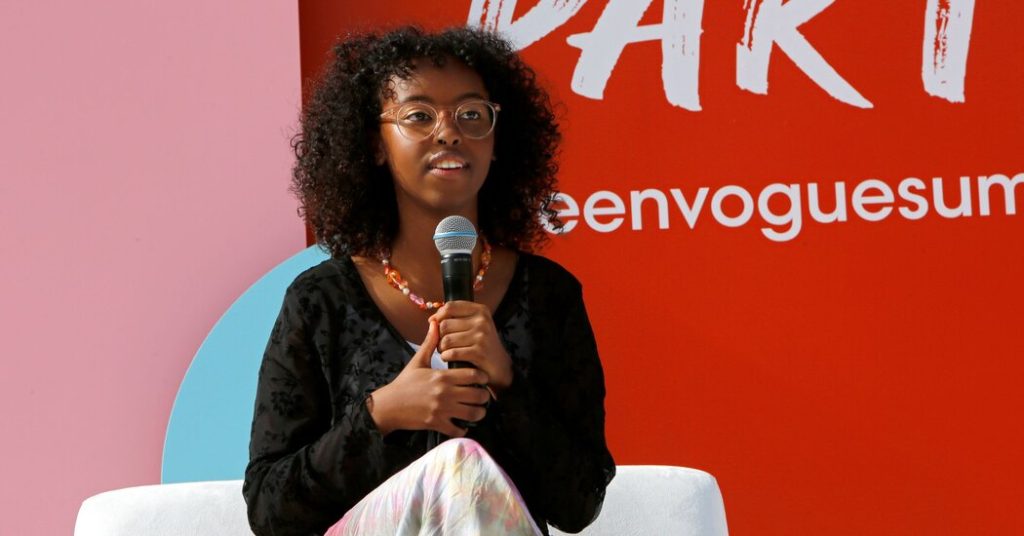Isra Hirsi, the daughter of Representative Ilhan Omar, was one of several Barnard students suspended for participating in a pro-Palestinian encampment at Columbia University. The camp was set up in protest against Israeli actions in Gaza, leading to a standoff between administrators and students. Dozens of students were eventually arrested after being notified of possible suspension if they didn’t move. Ms. Hirsi was included among the suspended students, part of a protest that began on the same day the university’s president testified before Congress about antisemitism on campus.
Ms. Hirsi, a 21-year-old sociology major, stated on social media that she was an organizer with Columbia University Apartheid Divest, advocating for the university to cut ties with companies supporting Israel. She is also involved with the Columbia chapter of Students for Justice in Palestine, one of the groups previously suspended for unauthorized protests. Alongside her, two other Barnard students, Maryam Iqbal and Soph Dinu, were suspended, according to protest organizers. Ms. Hirsi’s involvement highlights her commitment to standing in solidarity with Palestinians facing what she describes as a genocide.
During the congressional hearing where Dr. Shafik testified, Ms. Omar questioned why pro-Palestinian students had faced eviction, suspension, harassment, and intimidation. Dr. Shafik stated that suspended students had refused to cooperate with an investigation into an event where support for Hamas was expressed, leading to serious consequences. Ms. Omar also inquired about an alleged chemical attack on protesters, with Dr. Shafik mentioning that the matter was under police investigation. Ms. Hirsi was reportedly among those sprayed with an odorous substance during the incident.
Ms. Omar further inquired about protests at Columbia targeting Muslim, Arab, Palestinian, or Jewish people, to which Dr. Shafik responded in the negative. Ms. Omar highlighted a rise in targeting and harassment against antiwar protesters, emphasizing recent attacks on the democratic rights of students nationwide. The hearing shed light on the complexities of the situation at Columbia University, where tensions between pro-Palestinian activists and university officials have escalated amid demands for divestment from companies supporting Israel.
The suspension of Isra Hirsi and other students raises questions about the treatment of pro-Palestinian activists on college campuses and the broader issue of free speech. Ms. Hirsi’s involvement in the protest underscores her dedication to advocating for Palestinian rights and challenging university policies that restrict student activism. The suspension also reflects a larger debate around the Israeli-Palestinian conflict and how it plays out in academic settings, where students are grappling with the complexities of advocating for social justice while facing potential consequences for their actions.
As the standoff at Columbia University continues, with students maintaining their encampment in protest against Israeli actions in Gaza, the situation highlights the ongoing challenges faced by pro-Palestinian activists in asserting their voices on college campuses. Ms. Hirsi’s suspension, along with that of other students, underscores the high stakes involved in advocating for Palestinian rights while navigating university policies and potential disciplinary actions. The broader implications of this incident underscore the complexities of balancing free speech rights with institutional regulations, sparking conversations about activism, censorship, and the Israeli-Palestinian conflict within higher education settings.


